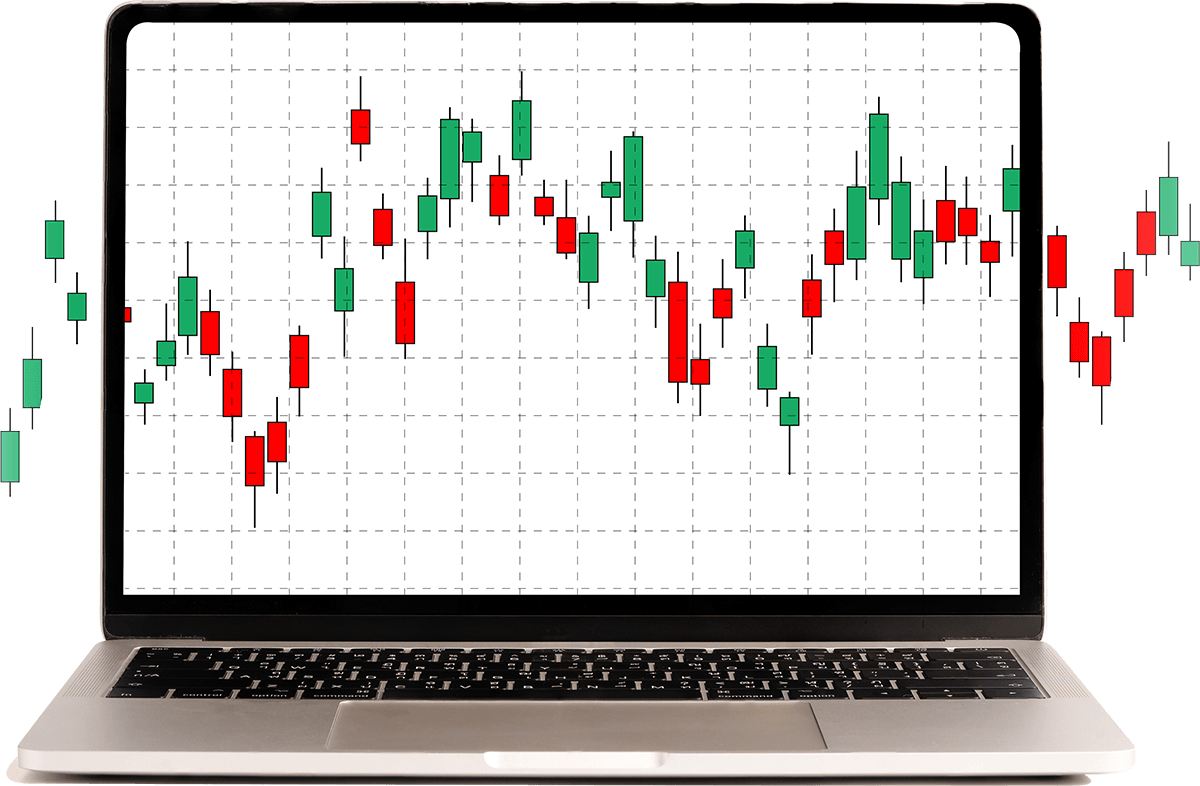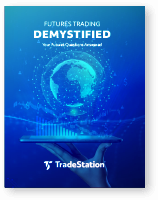What is a Futures Contract?

Futures are a relatively straightforward way to position for the stock market going up or down. And now, thanks to Micros, scalability and size adjustment are a huge part of the story for the increasing popularity of futures contracts.
So, what exactly are futures contracts, and how do they fit into your investment strategy? Read on to learn more.
Here’s a basic overview of how to get started
What is a Futures Contract?
A futures contract is an agreement to buy or sell an asset on a public exchange at a specific price and date in the future. Futures contracts track the value of the underlying asset, which could be a commodity, stock, currency, or bond.
The buyer of a futures contract is obligated to take possession of the underlying asset at the expiration date of the contract, and a seller has the obligation to make the asset available on that stipulated date as well. Some contracts require the delivery of a physical asset, such as crude oil, while others, such as contracts on the S&P 500 index, are cash-settled.
Futures have two uses: hedging for risk management and speculating. Hedgers use futures contracts to lock in delivery dates and prices to mitigate the risks of market fluctuations and uncertainties. Hedgers, or commercial traders, can also go long or short to protect against price fluctuations. For example, a refinery with too much crude oil in storage can short crude oil futures.
Speculators use futures contracts to take both long and short positions, depending upon their view of the direction of the market. Traders typically do not intend to take possession of the underlying asset.
Therefore, they close out their positions before the expiration date of the contract to eliminate any obligations.

How Does a Futures Contract Work?



Futures contracts are traded on an exchange like the Chicago Mercantile Exchange (CME)1, and investors are required to have an account approved by a brokerage firm like TradeStation in order to trade futures. The Commodity Futures Trading Commission (CFTC), a federal agency, regulates the trading of futures contracts.
Futures Trading Demystified:
Your Futures Questions Answered
Download the FREE GUIDE
to get answers to the most asked futures questions.
What Is an Example of a Futures Contract?
Suppose a farmer and a soybean meal manufacturer want to limit their risk and control their costs of operation. A farmer may want to lock in a price to sell their crop, so they know exactly how much money they’re going to receive and avoid a potential loss from declining prices. The manufacturer of soybean meal may want to lock in a price to purchase soybeans to assure delivery of the product, control production costs, and avoid price increases.
To meet the needs of both parties, the farmer sells a futures contract to deliver a certain quantity at a specified date, and the manufacturer buys the contract to accept delivery on the agreed-upon date.
Margin Requirements for Future Contracts
Futures contracts are highly leveraged, meaning traders have the ability to control a large number of assets with a relatively small amount of capital. Margin requirements typically range from 3-10% of the underlying contract value and are the same for both long and short positions.
The high leverage gives traders the chance to make substantial returns on their invested capital. However, the reverse is also true. The high leverage can also result in a significant loss of invested capital.
Download TradeStation’s ebook, Futures Trading Demystified: Your Futures Questions Answered, to learn the ins and outs of futures trading.

Futures Trading Demystified: Your Futures Questions Answered
In Futures Trading Demystified, get answers to the most commonly asked futures questions. Get your free guide to learn:

- How futures trading works
- Why traders choose futures
- Answers to frequently asked futures questions
- And much more
Sources
- Chicago Mercantile Exchange. “Definition of a Futures Contract“
Important Information: This content is for informational and educational purposes only. This is not a recommendation regarding any investment or investment strategy.
Investing involves risks. Past performance, whether actual or indicated by historical tests of strategies, is no guarantee of future performance or success. There is a possibility that you may sustain a loss equal to or greater than your entire investment regardless of which asset class you trade (equities, options, futures, or digital assets); therefore, you should not invest or risk money that you cannot afford to lose. Before trading any asset class, first read the relevant risk disclosure statements on the Important Documents page, found here: www.tradestation.com/important-information.
Futures offered through TradeStation Securities Inc. TradeStation Securities, Inc., TradeStation Crypto, Inc., and TradeStation Technologies, Inc. are each wholly owned subsidiaries of TradeStation Group, Inc., all operating, and providing products and services, under the TradeStation brand and trademark. When applying for, or purchasing, accounts, subscriptions, products and services, it is important that you know which company you will be dealing with. Please click here for further important information explaining what this means.


